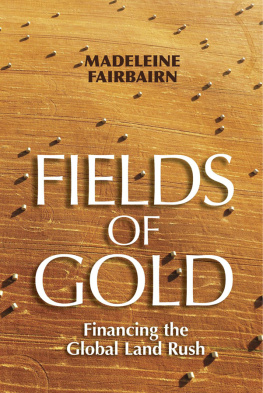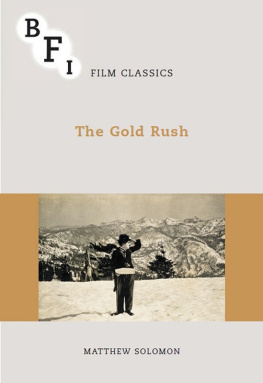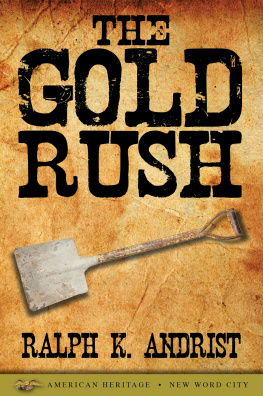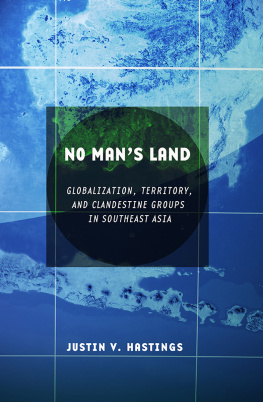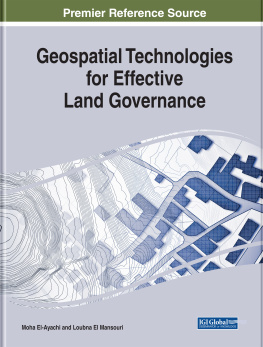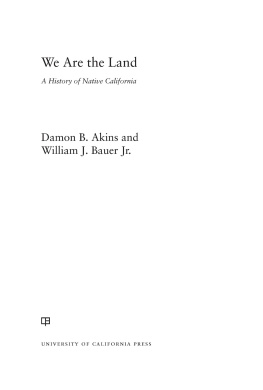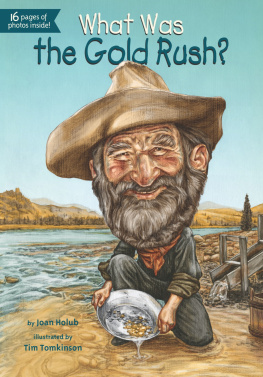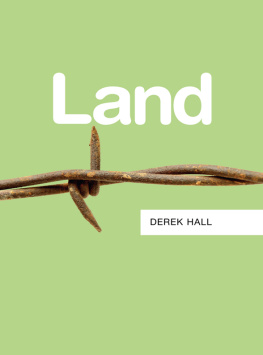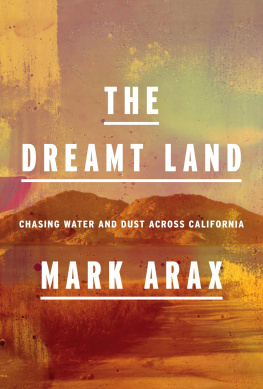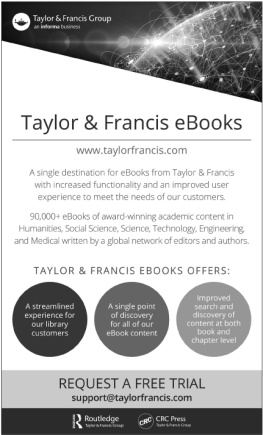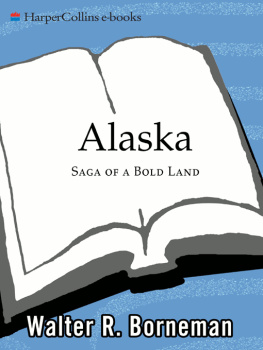
Copyright 2020 by Cornell University
The text of this book is licensed under a Creative Commons Attribution-NonCommercial-NoDerivatives 4.0 International License: https://creativecommons.org/licenses/by-nc-nd/4.0/. To use this book, or parts of this book, in any way not covered by the license, please contact Cornell University Press, Sage House, 512 East State Street, Ithaca, New York 14850. Visit our website at cornellpress.cornell.edu.
First published 2020 by Cornell University Press
Library of Congress Cataloging-in-Publication Data
Names: Fairbairn, Madeleine, author.
Title: Fields of gold : financing the global land rush / Madeleine Fairbairn.
Description: Ithaca [New York] : Cornell University Press, 2020. | Series: Cornell series on land : perspectives in territory, development, and environment | Includes bibliographical references and index.
Identifiers: LCCN 2019058742 (print) | LCCN 2019058743 (ebook) | ISBN 9781501750076 (hardcover) | ISBN 9781501750083 (paperback) | ISBN 9781501750090 (epub) | ISBN 9781501750106 (pdf)
Subjects: LCSH: AgricultureFinance. | AgricultureCapital investments. | AgricultureEconomic aspects. | FarmsForeign ownership. | Financialization.
Classification: LCC HD1437 .F35 2020 (print) | LCC HD1437 (ebook) | DDC 333.33/5dc23
LC record available at https://lccn.loc.gov/2019058742
LC ebook record available at https://lccn.loc.gov/2019058743
Cover photograph: Jackie Tighe, Spun Gold (detail), August 15, 2016. Used by permission from the photographer.
For Hannah and Neil Fairbairn
Acknowledgments
Although I cannot name them here, I would like to begin by thanking the many farmland investors, government officials, and activists who granted me interviews for this research. I am also deeply grateful to the investment conference organizers who allowed me to attend their events. This research would not have been possible without their generosity with time and information. I would also like to thank the many people who gave me permission to use their data and images in this book, including Jackie Tighe, Oliver Williams, Brandon Wu, and Bruce Sherrick, as well as representatives of Fquare, GMO, Savills Research, SLC Agrcola, NCREIF, and Preqin.
This research was also made possible by a number of grants and fellowships: a Graduate Research Fellowship from the National Science Foundation; an International Dissertation Research Fellowship from the Social Science Research Council; a Dissertation Completion Fellowship from the American Council of Learned Societies and the Andrew W. Mellon Foundation; a Louis and Elsa Thomsen Wisconsin Distinguished Graduate Fellowship from the College of Agricultural and Life Sciences at the University of WisconsinMadison; an Evelyn T. Crowe Fund Pre-dissertation Research Support Grant from the Community and Environmental Sociology Department at UWMadison; a Scott Kloeck-Jenson Pre-dissertation Travel Grant from the Global Studies Program at UWMadison; and a Nave Short Term Field Research Grant from the Latin America, Caribbean, and Iberian Studies Program at UWMadison. I greatly appreciate this generous financial assistance.
This book grew out of research conducted during my time in the Community and Environmental Sociology Department at the University of WisconsinMadison. There I benefited from the mentorship of Jack Kloppenburg and Gay Seidman. Jack is a role model for what a public intellectual can bea brilliant thinker and writer whose ambitions extend well beyond thinking and writing. His unshakable and frequently expressed faith in my abilities was a marvelous gift. Gays penetrating intellect, thoughtful feedback, and friendship were likewise indispensable. I wish that I could still workshop my articles over tea and cookies at her house. I am also deeply grateful to Jane Collins and Jess Gilbert, who both provided me with ideas that would become absolutely central to my thinking. I am also fortunate to have had Phil McMichael as an inspiring and supportive presence in my intellectual life since my days as an undergraduate at Cornell University and continuing throughout my graduate studies.
My research in Brazil was made possible by Bastiaan Reydon. In addition to sharing his broad expertise on Brazilian land markets, he housed, fed, and entertained me, enlivening my time in Brazil with his generous spirit and humor. In Brazil I would also like to thank Ana Karina Silva Bueno for friendship and hospitality, Vitor Bukvar Fernandes for research assistance, John Wilkinson for thoughtful feedback on my work, and Srgio Sauer for generous advice while I was conducting research in Braslia. Before heading to Brazil I spent time researching the land rush in Mozambique, which helped shape my perspective. This research was kindly facilitated by David Stanfield of the Terra Institute and Calisto Ribeiro and Loureno Duvane of the Rural Association for Mutual Support (ORAM).
Many others have supported me intellectually over the years in which this book took shape. Brett Christophers, Loka Ashwood, Keli Benko, and Mike Levien kindly read and provided feedback on earlier versions of this manuscript. Mike did so, heroically, over the winter holidays while working frantically toward a deadline of his own. Katy-Anne Legun and Zenia Kish, my tireless writing group, have read more versions of this than any of us can count. Many others have provided advice or intellectual stimulation along the way: Oriol Mirosa, Leland Glenna, Ryan Isakson, Oane Visser, Stefan Ouma, Geoff Lawrence, Jun Borras, and Kathryn De Master, to name a few. I am, of course, very grateful to the academic editors of the Cornell University Press Series on LandNancy Peluso, Wendy Wolford, and especially Michael Goldmanfor agreeing to publish my work and to Jim Lance and Jennifer Savran Kelly for shepherding the book through the publication process. Two anonymous reviewers also provided me with tremendously thoughtful and constructive feedback.
I am also deeply indebted to my colleagues in the Environmental Studies Department at the University of California, Santa Cruz, including (but by no means limited to) Stacy Philpott, Carol Shennan, Deborah Letourneau, Jeff Bury, Sikina Jinnah, Daniel Press, and Andy Szasz. I have also greatly benefited from working with Emily Reisman, Halie Kampman, Allyson Makuch, Monika Egerer, Robin Lovell, Estel Jimenez-Soto, Aysha Peterson, and the other brilliant graduate students of the UCSC agri-food working group. At UCSC I am particularly grateful for the friendship and inspiration provided by Julie Guthman and Margaret FitzSimmons, both of whom kindly read portions of this manuscript. Their intellectual fingerprints are all over my workor at least the good parts of it. In a manner typical of her generous spirit, Margaret worked hard when she retired to ensure that her remaining research funds would be transferred to my name. It was this gift that allowed me to make the digital version of this book open access.
Finally, I wouldnt have completed (or even begun) this project without my family. I am grateful to my parents, Hannah and Neil, whose own intellectual curiosity never seems to diminish; my sister Catharine, who supplies ample laughter and commiseration as we forge our parallel academic journeys; and my babies Arthur and Edith, who have never known life when I wasnt writing this book and yet seem to love me anyway. Most of all I am grateful to my husband, Robbie. Doreen Massey and Alejandrina Catalano end the acknowledgments to their 1978 book Capital and Land with a tongue-in-cheek sentence: Neither of us has a wife to thank for solace and self-effacement. This commentary on the gender relations behind academic production, though undoubtedly still relevant, is happily inapplicable in my case. Thank you, Robbie, for the child rearing, the housecleaning, the hot meals, the graphic design help, the solace, and the self-effacement. I really am going to stop working on weekends soon.
Next page
